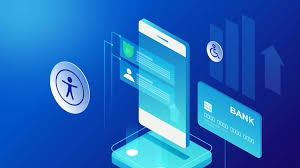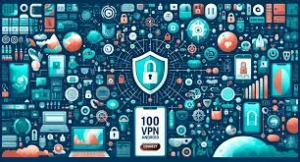In today’s digital age, online banking offers customers immediate access to their financial information. This level of convenience is invaluable, whether you’re planning for the future or navigating unexpected financial situations. Most traditional banks now provide some form of online banking alongside their physical branches, while a number of institutions operate exclusively online. Although mobile banking applications and web portals enhance accessibility to your finances, concerns about security still linger for many users. To ensure you safeguard your information while banking over the internet, it’s crucial to stay informed.

The primary advantage of online banking lies in its convenience. Customers can efficiently perform tasks like checking account balances, transferring money between accounts, depositing checks, and paying bills at any time and from virtually anywhere using a computer or smartphone app—eliminating the necessity of visiting a bank branch altogether. Online-only banks often can offer more attractive interest rates and lower fees because they maintain fewer physical locations and incur reduced operational costs. Significantly, these advantages do not compromise safety; even an online-only bank is equipped with all the federal protections that apply to traditional institutions.
Before you decide to open an account with an exclusively digital bank, it’s essential to confirm that it carries FDIC insurance, which protects individual deposits up to $250,000. Additionally, when accessing your account through the bank’s website, ensure that it employs robust encryption methods to secure your data—look for at least 128-bit encryption as a standard measure—and be aware that access may be restricted if you are using a browser that does not meet these security requirements.
Ensuring the security of your online banking is essential, especially since, despite the robust security measures implemented by your bank, you still need to take steps to protect yourself from identity theft and cyberattacks. Here are five effective strategies to help you safeguard your information.

First and foremost, it’s vital to create strong passwords. Even if your bank mandates a secure password, it’s essential that any devices where you store banking information—like computers or smartphones—are also secured with passwords. This precaution can significantly hinder unauthorised access in case your device is lost or stolen. If remembering multiple passwords is challenging for you, consider using a password manager application. This tool can securely store all your passwords so that you only need to recall one master password.
Next, activating multifactor authentication (MFA) is crucial for enhancing account security. Your bank should offer MFA as an added layer of protection when logging into your online account. This typically involves more than just entering a username and password; it could require answering security questions or inputting a verification code sent directly to your phone. Additionally, accessing banking services through a mobile app should prompt you for either a passcode or biometric verification.

Another critical step is never sharing your passwords under any circumstances. Cybercriminals often employ clever tactics to trick individuals into divulging sensitive information. They may set up counterfeit websites mimicking those of legitimate banks, send seemingly authentic emails, or place phone calls designed to instil fear and urgency. Always remember that legitimate banks will never ask for personal details or banking credentials via email or phone requests. If you receive such inquiries, it’s best to reach out directly to your bank using contact details that you already possess rather than responding through suspicious communication.
By following these fundamental yet vital practices—utilising strong passwords, enabling multifactor authentication, and safeguarding against phishing attempts—you can significantly enhance the security of your online banking experience and protect yourself from potential threats.
When it comes to using public Wi-Fi networks, it’s wise to exercise caution. Even if your devices boast strong security measures, accessing your bank account over an unsecured connection can put your sensitive information at risk. While it may be tempting to connect to the complimentary Wi-Fi at a nearby café, doing so could leave you vulnerable to data thieves eager to exploit that openness. It’s best to hold off on visiting crucial websites like your bank or email until you’re back in the safety of your home network.

If you need banking access while out and about, consider using your bank’s mobile app instead, ensuring you’re connected through your cellular provider for added security. Another effective way to safeguard your internet connection is by utilising a virtual private network (VPN). Although reliable VPN services typically come with a monthly subscription fee, they are essential for protecting your banking information when you’re on unfamiliar networks.

Additionally, it’s beneficial to set up alerts with your bank. Most institutions offer options through their online platforms or mobile applications that notify you of any unusual activity in real time. You can opt for these alerts via text messages or emails and customise them for significant events like large withdrawals, account closures, or new check orders. You can even keep track of debit card transactions this way. By taking these precautions and staying informed about your accounts, you can better protect yourself from potential threats while managing your finances on the go.
Maxthon
In the current digital landscape, protecting your online banking details has become increasingly vital, mainly when using a browser like Maxthon. To help you navigate this environment safely, consider these key strategies for boosting your security.

The cornerstone of your online safety is having robust passwords. It’s essential to create passwords that are not unique but also intricate. Aim for a combination of uppercase and lowercase letters, numbers, and special symbols. Avoid easily guessed information like birthdays or pet names, as these can be too straightforward for cybercriminals to decipher.
Next, it’s important to enable Two-Factor Authentication (2FA) if it’s available through your bank. By doing so, you add an extra layer of protection that requires you to enter a code sent via text or email in addition to your password. This simple extra step can significantly reduce the risk of unauthorised access.
Another critical practice is keeping your Maxthon browser updated. Regularly checking for updates allows you to take advantage of the latest security patches and improvements aimed at defending against new vulnerabilities. Staying updated can be one of the easiest yet most effective ways to strengthen your defences.
Additionally, make it a routine to clear your browsing data often. By routinely deleting your history, cache, and cookies, you remove any sensitive information that hackers could potentially exploit if they gain access to your device.
Maxthon also offers a feature called privacy mode that can further protect you during online banking activities. When activated, this mode ensures that no data—such as cookies or site information—is saved after each session concludes, thus providing an extra layer of anonymity while handling financial transactions on the web.
To further enhance your security measures, consider installing trusted security extensions or tools designed specifically for safeguarding online activities.

